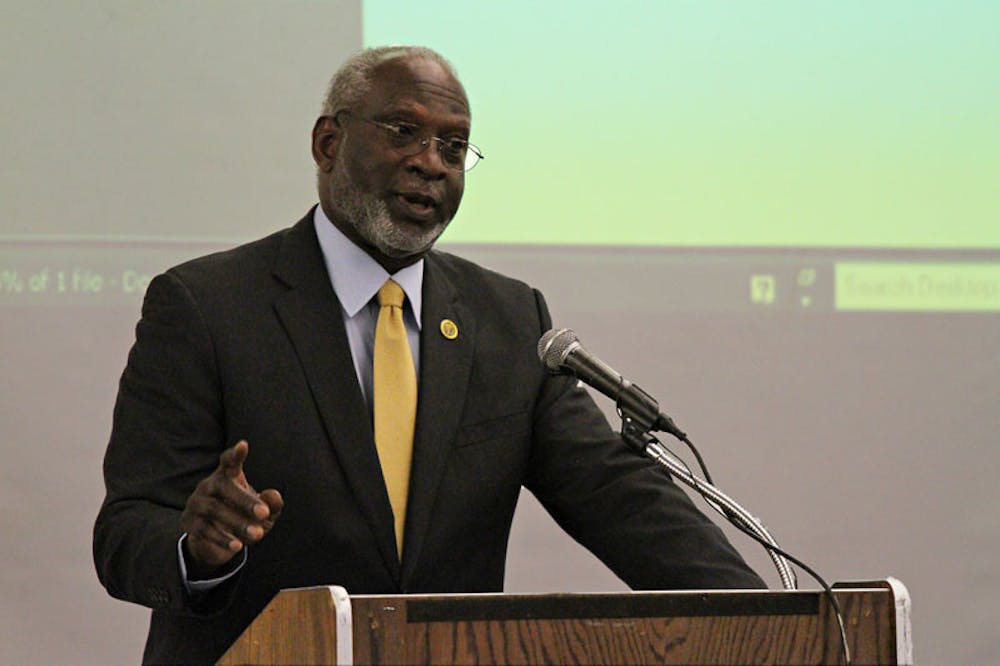Former U.S. Surgeon General David Satcher discussed current issues in public health at the 14th annual Barnes Lecture, part of Public Health Research day Thursday. The talk, “Health Disparities: Can we overcome?,” focused on the social determinants of health, the relationship between science and politics and problems facing the medical community.
The Andrews Dining Hall audience mainly consisted of public health professionals and individuals affiliated with the University’s public health program. The lecture followed a two-hour student poster session, displaying a variety of public health research projects.
President Christina Paxson introduced Satcher, praising him for “breaking new ground” on numerous public health issues as Surgeon General. She spoke enthusiastically about the University’s recent decision to establish a School of Public Health, which will officially exist as of July 1, she said.
Satcher said he was “delighted to hear” about the new school because of the importance of preparing future leaders to tackle pressing national health issues. Satcher is currently the director of the Satcher Health Leadership Institute at his alma mater, the Morehouse School of Medicine in Atlanta, Ga.
“We can’t just leave the emergence of public health leaders to chance alone,” Satcher said.
Satcher also spoke of community outreach projects undertaken by his Morehouse students. His favorite program, he said, is focused on training parents from a predominantly black, low-income neighborhood in parenting skills and providing for good early childhood development. Community outreach is crucial, he said, because nothing substantive can be accomplished solely within academia.
In addressing disparities in health, Satcher said social determinants “are more important for health outcome than is health care.” This is why policymakers must consider people themselves when making health policy recommendations.
For example, many individuals in poor urban communities do not have access to the fresh fruits and vegetables recommended by doctors, Satcher said. They may be unable to exercise outside due to a lack of safety in their neighborhoods. Good physicians are also often unwilling to settle in these types of communities, restricting access to care.
Satcher talked about the relationship between science and politics and public health. He said that policies are formed through the give and take of research and lobbying. “In order to be successful in health policy, you have to be determined and patient — you’re going to have a lot of setbacks,” he said. Satcher added that he often felt his ideas were restricted by political forces and funding constraints, both during his tenure as Surgeon General and as director of the Centers for Disease Control and Prevention.
Throughout the talk, Satcher mentioned specific reports produced and policies recommended by his office while he was Surgeon General. He spoke of a need for further strong research in health, saying that this research is worth substantial investment.
Satcher also talked extensively about the obesity “epidemic” in the United States. To combat obesity and other health issues, programs need to target children to help them get started on the path to establishing healthy lifestyles before health problems arise, Satcher said. Quality preventative measures are crucial for public health, necessitating universal access to primary care, he added.

ADVERTISEMENT
More




